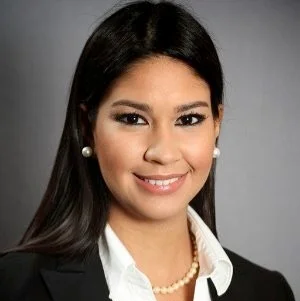
So you went through a foreign marriage abroad—maybe under the Eiffel Tower, on a beach in Bali, or during a traditional ceremony in your partner’s hometown. 💍🌎
But now you’re back in the States (or planning to be), and you’re wondering:
“Will the U.S. actually recognize my foreign marriage?”
Here’s the good news:
If your marriage was legally valid where it happened, it’s usually valid here too.
The not-so-good news? There are a few legal twists you really want to know about—especially if immigration or legal benefits are involved.
Let’s break it down in a way that’s fun, simple, and informative way.
🧾 The Two Golden Rules of Recognizing Foreign Marriages
✅ Rule #1: The Marriage Must Be Legal in the Country Where It Took Place
This is the big one.
Under U.S. law, a foreign marriage is generally considered valid if it was legally performed and recognized by the local laws of the country where it occurred.
That means:
- You followed that country’s marriage laws
- You had a proper officiant (civil or religious)
- You received a valid marriage certificate
📌 Example: If you got married in Japan following their civil procedure, even if no religious ceremony occurred, the U.S. would likely recognize that marriage.
Want the official word? Check out the U.S. Department of State’s Marriage Abroad page.
❌ Rule #2: The Marriage Must Not Violate U.S. Public Policy
Even if your marriage is valid abroad, the U.S. might refuse to recognize it if it goes against certain laws or public policies.
Some examples of unrecognized marriages:
- Polygamous marriages (valid in some countries, but not in the U.S.)
- Child marriages that wouldn’t meet the legal age of consent in the U.S.
- Incestuous marriages (prohibited regardless of location)
The U.S. doesn’t ask how romantic your wedding was—just whether it follows U.S. legal and ethical standards.
For more on this, refer to the USCIS Adjudicator’s Field Manual for relationship validity guidelines.
🇺🇸 Do You Need to “Register” Your Foreign Marriage in the U.S.?
Nope. There is no federal requirement to re-register a valid foreign marriage in the U.S.
But you might need to:
- Translate your marriage certificate (if it’s not in English)
- Submit it during immigration applications, tax filings, or insurance updates
- Provide it when applying for a Social Security name change
💡 Pro Tip: Each U.S. state may have different policies when it comes to name changes, spousal rights, or insurance—check your local laws or ask your immigration attorney.
🛂 Will USCIS Accept My Foreign Marriage?
USCIS uses a simple test:
If your marriage is legally valid in the country where it was performed and not against U.S. public policy, it’s generally valid for immigration purposes.
If you’re petitioning for your spouse’s green card, you’ll likely need to:
- Submit a certified copy of your foreign marriage certificate
- Provide a certified English translation
- File Form I-130 (Petition for Alien Relative)
- Show your relationship is “bona fide” (aka, not just for the visa)
👉 Learn more about marriage-based immigration at the USCIS Marriage Green Card page.
🧠 Common Misconceptions (That Can Get You in Trouble)
❌ “If we have a religious ceremony, that’s enough.”
Not always. Many countries require a civil ceremony for legal recognition. Be sure to follow the legal marriage process in your spouse’s country.
❌ “We’ll just get married twice to be safe.”
Double weddings can work, but they can also confuse immigration officers if not explained clearly. Be careful about conflicting dates or incomplete paperwork.
❌ “We’re common-law married abroad—so that counts, right?”
Only a handful of U.S. states (like Texas or Colorado) recognize common-law marriages, and USCIS may not accept one formed abroad unless it meets strict criteria.
🧑⚖️ When Should You Contact an Immigration Attorney?
If any of these sound familiar:
- You’re not sure if your marriage is legally recognized
- Your documents are from a country with complex marriage laws
- You’re planning to file an immigration petition
- You’re worried about delays, denials, or inconsistencies
Then you should talk to a legal expert. We can help you:
- Validate your foreign marriage for immigration
- Translate and authenticate foreign documents
- Avoid paperwork pitfalls that slow down green card approvals
📞 Book a consultation now and get peace of mind.
💡 Final Thoughts: Love Is Global, but the Law Is Local
Yes—foreign marriages can be recognized in the U.S.
But only if they’re legally valid where performed and don’t break U.S. rules.
Before you file that immigration petition or update your legal name, take a moment to verify that your marriage meets the mark.
Because nothing says “I love you” like a legally valid, immigration-friendly, paperwork-approved union. 💕📑

